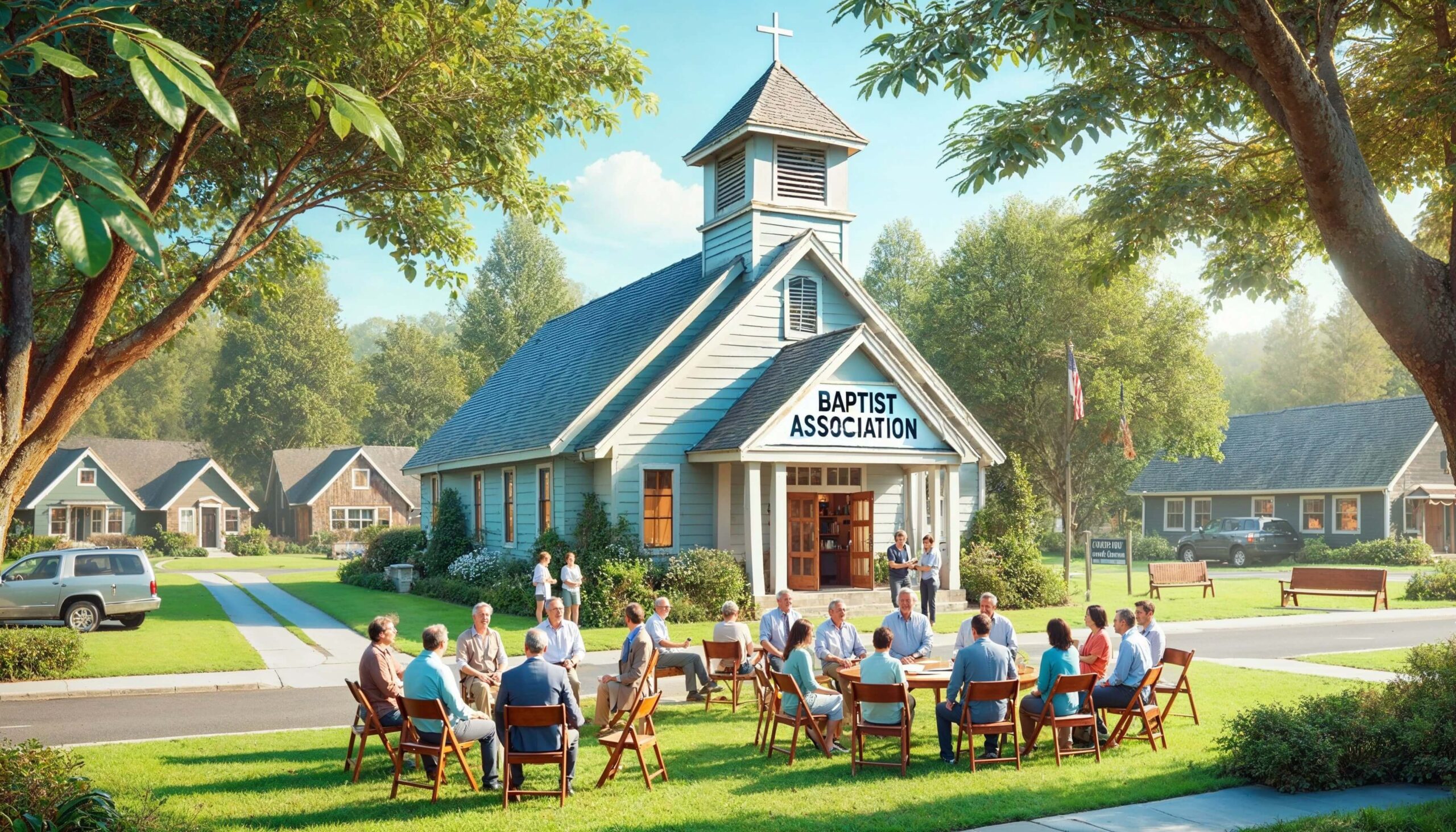The Christian faith has gone through a process of fragmentation throughout the last 2,000 years and especially since the early 1500s, when the Reformation began. Much of this process has come about through revival. As the Holy Spirit gives revelation and knowledge to the Body of Christ, there are those who receive and accept that revelation and those who don’t. The resulting disagreement often causes separation, with the new group eventually forming a new denomination. This process has led to the point where we have several thousand Christian denominations in the world today.
Here in the United States the largest Christian denomination is the Baptists, who account for 15.4% of all American Christians. Yet even this large group is somewhat divided, consisting of four separate “conventions.”
As with all denominations, there are doctrinal and organizational aspects about the Baptists that are unique to them. There is no one pattern that all Christian denominations have to follow. Even so, the Baptists do stand out from most other denominations in their organization. Not only are they the largest single denomination in the United States; but they are also the most uniquely organized.
To start with, the Baptist church does not operate from a top-down management structure, with the denomination controlling the individual churches. Rather, the government of the Baptist churches is autonomous on the local level, with each church being self-managed by their board of deacons. This board hires the pastor or may create a committee for the purpose of searching out a pastor. Pastors can come from the congregation and even be ordained by the local church. The denomination does not send in a pastor to lead a church, although they may send a list of potential candidates for the selection board to review, if the church requests it.
At the other end of the organizational spectrum is the Baptist Convention. This term refers to both the organization and their semi-annual meetings. There are several separate Baptist Conventions, with the Southern Baptist being the largest in the United States. Determining just how many organizations or conventions there are is difficult, because different people count them differently; but there are at least 14. This is not consequential to the Baptists themselves, as they are not concerned with a central organization, but rather focused on the local church and on missions. While they are all Baptists alike, the various organizations are separate, united by their faith, rather than by any governmental body.
The Baptist Associations fill the space in-between the local church and the conventions. They are not governmental bodies; but rather local groups of Baptist churches, which have come together for mutual aid and to allow them to accomplish more than the individual churches can do on their own.
There are many Baptist associations, which vary in size. The state of Florida, for example, has 49 of them. Other states have more or less, depending on how many churches there are and how widely they are spread out. There tend to be more in the southern states, where there is a higher concentration of Baptist churches.
The purpose of the Baptists Associations is to provide assistance to the local churches, for the purpose of advancing the Gospel of Jesus Christ. Baptists are big on winning souls and getting people baptized. The number of baptisms a church performs in a year is one of the major metrics they track, as a measure of how healthy that church is and how quickly it is growing.
These associations are not governmental in structure. Rather, they exist because local churches have come together to create them. Cooperation through associations allows local churches to accomplish things they otherwise couldn’t, such as sending missionaries to the field. One of the major works of the associations is missions work; both foreign and domestic. All Baptist Associations have mission directors, who work to support existing missionaries and increase the overall mission work of the Baptist churches.
The Baptist denomination is one of the biggest mission-sending organizations in the world, with the Southern Baptist convention supporting 4,800 missionaries, with an additional 450 people acting as full-time support staff. Additionally, Baptist churches operate many domestic missions works.
Associations also provide support of various types to the local churches. This can include training and resources for the pastor and leadership, as well as financial support in times of need. Baptist pastors who are going through times of personal crisis can make an appeal to their association for help. This will then be sent out to the other churches in the association, who will often give a love offering to assist the needy pastor. Having an association to do this not only speeds up the process, but eliminates the time requirement for the pastor in need to contact each church individually and ask for help; something that few would be likely to do.
Membership of individual churches in their local association is purely voluntary, as is their giving to that association. Typically, a percentage of the offerings that the local church receives are set aside as an offering to the association, as decided on by the board of deacons. There is no “minimum payment” required; but it is done as the church decides.
The Association will form an Executive Committee, consisting of the church pastors, full time staff and elected laymen from each congregation. There is also an administrative committee, which acts in emergency situations. These two committees, along with a Director of Missions, carry on the day-to-day operations of the Association.
The key thing though, is that the Association exists to support the local churches, rather than to manage it. As I mentioned earlier, the churches are autonomous, the association is not the “boss,” but rather a resource. As such, they do not act as an arbitrator for disputes or to discipline pastors who might have made mistakes. All that is to be accomplished at the local church level. However, the Director of Missions will provide consultation and assistance upon request.
